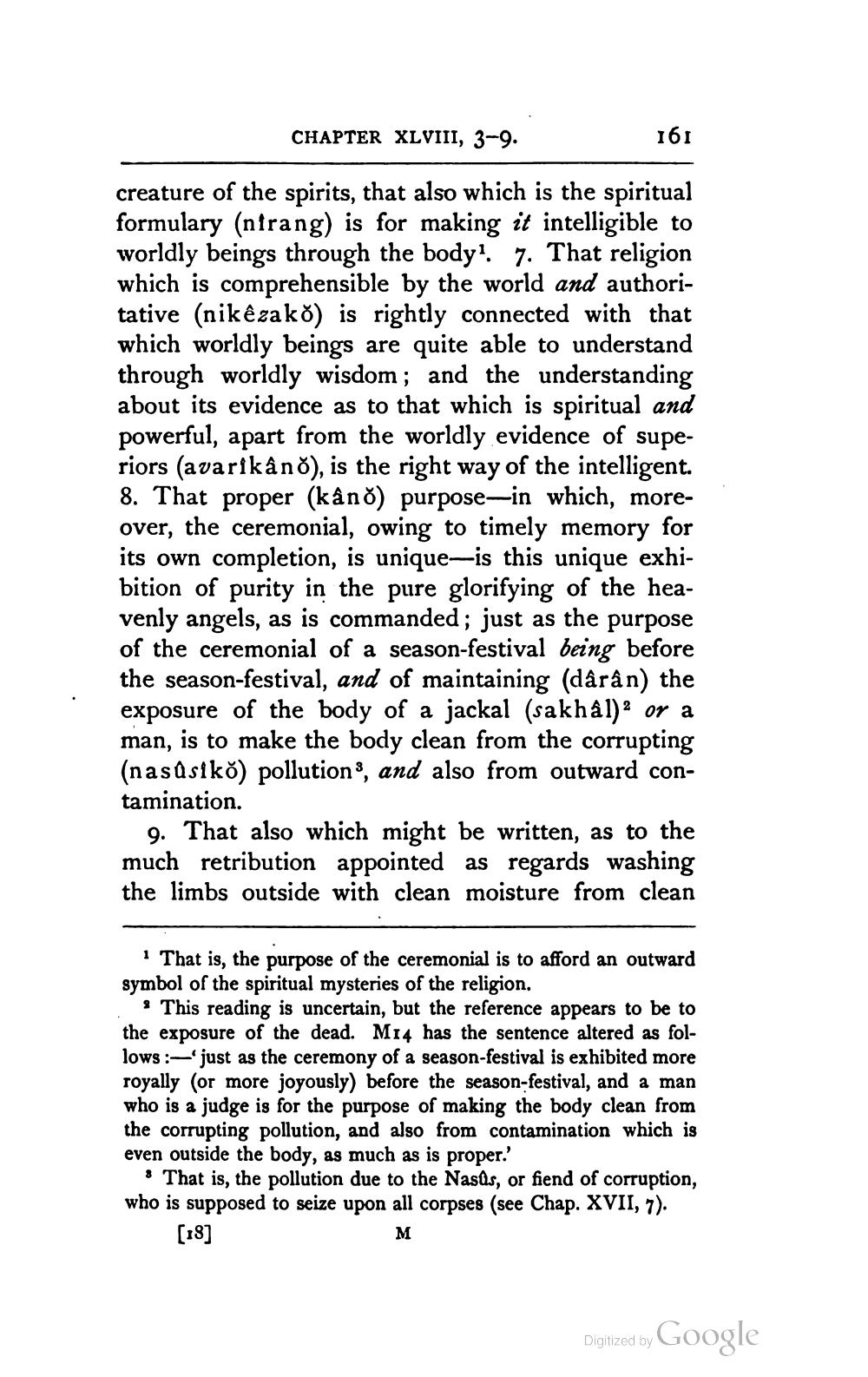________________
CHAPTER XLVIII, 3-9.
161
creature of the spirits, that also which is the spiritual formulary (nfrang) is for making it intelligible to worldly beings through the body' 7. That religion which is comprehensible by the world and authoritative (nikêzako) is rightly connected with that which worldly beings are quite able to understand through worldly wisdom; and the understanding about its evidence as to that which is spiritual and powerful, apart from the worldly evidence of superiors (avarikano), is the right way of the intelligent. 8. That proper (kâng) purpose-in which, moreover, the ceremonial, owing to timely memory for its own completion, is unique—is this unique exhibition of purity in the pure glorifying of the heavenly angels, as is commanded; just as the purpose of the ceremonial of a season-festival being before the season-festival, and of maintaining (dârân) the exposure of the body of a jackal (sakhâl)? or a man, is to make the body clean from the corrupting (nasasiko) pollution, and also from outward contamination.
9. That also which might be written, as to the much retribution appointed as regards washing the limbs outside with clean moisture from clean
1 That is, the purpose of the ceremonial is to afford an outward symbol of the spiritual mysteries of the religion.
9 This reading is uncertain, but the reference appears to be to the exposure of the dead. M14 has the sentence altered as follows:-- just as the ceremony of a season-festival is exhibited more royally (or more joyously) before the season-festival, and a man who is a judge is for the purpose of making the body clean from the corrupting pollution, and also from contamination which is even outside the body, as much as is proper.'
* That is, the pollution due to the Nasas, or fiend of corruption, who is supposed to seize upon all corpses (see Chap. XVII, 7).
[18]
M
Digitized by Google




